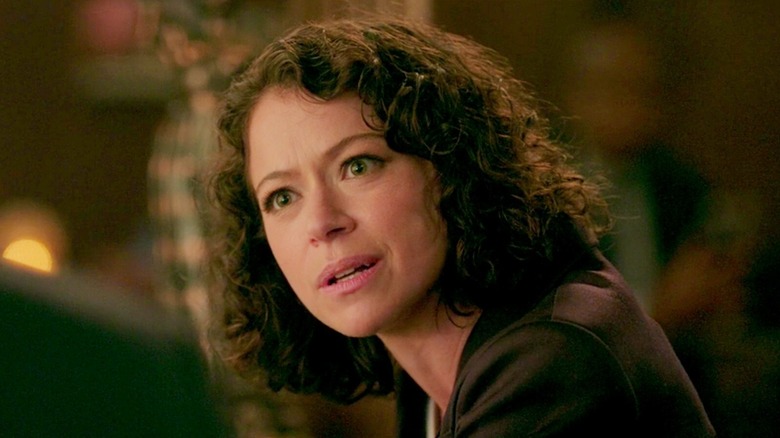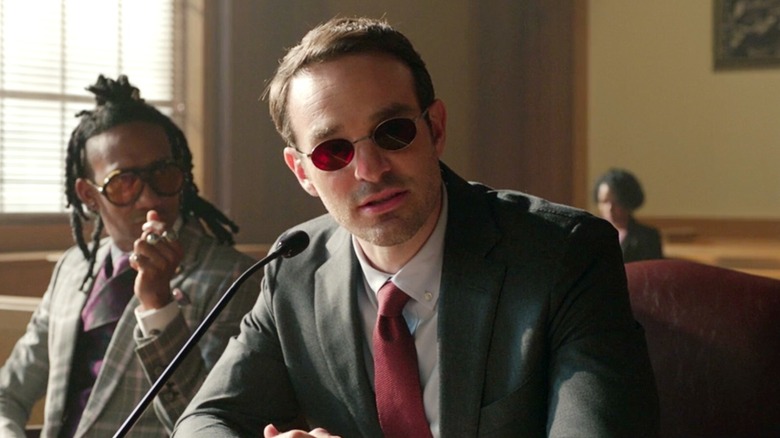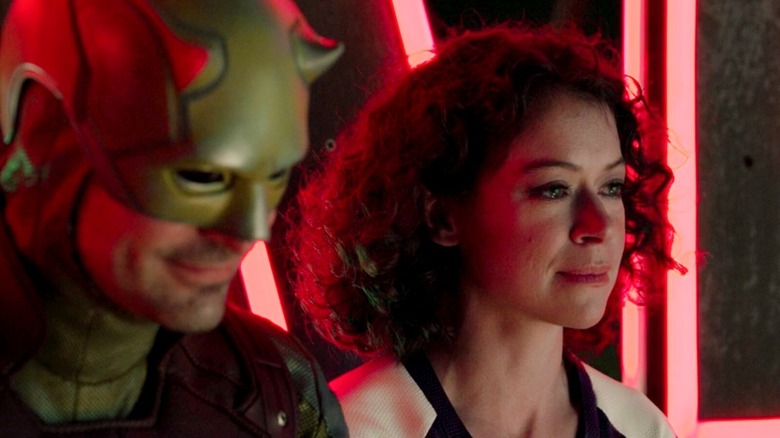She-Hulk Just Casually Eliminated The Reason For Captain America: Civil War — What Does This Mean For The MCU?
This post contains spoilers for the latest episode of "She-Hulk."
Secret identities are a pillar of superhero stories, a cornerstone of the genre, and the thing that first set the Marvel Cinematic Universe apart from any other superhero franchise. Before Nick Fury dropped by to reveal a larger universe and tease the creation of the Avengers, it was Tony Stark publicly and willingly proclaiming "I am Iron Man" that forever changed the superhero genre in cinema. From there, the idea of a secret identity fueled both the plot of "Spider-Man: No Way Home," and was the whole raison d'être for "Captain America: Civil War."
If you need a reminder, the third and final (for now) "Captain America" film revolved around the Sokovia Accords, a set of legal documents designed to regulate superheroes by government entities. Tony Stark was very much in favor of regulation, having witnessed the destruction (and caused a lot of it) heroes were capable of when left to their own devices and egos, while Steve Rogers was very much against anything that would limit their individual freedoms. A fight ensued, and the two broke up in a very sad and emotional fight that also involved Bucky.
The Sokovia Accords were a huge turning point for the MCU, as it split the Avengers, who never truly recovered, and opened the door for more street-level vigilantes who fought crime while skirting the law. But now, it seems that is all over? Because "She-Hulk: Attorney at Law" just casually eliminated the whole thing.
Sokovia no more, in paper or in reality
Episode eight of "She-Hulk" has the show firing on all cylinders. No matter what makes you want to watch the show, there is something here for all types of fans. We have some great action with the return (sort of) of Daredevil's hallway fights, we get some actually good banter between Matt Murdock and Jennifer, we get some steamy hot romance, and plenty of fantastic Easter eggs for the larger MCU that makes this feel like part of a lived-in universe with consequences.
Of course, the biggest of these easter eggs is one big bombshell dropped by Matt Murdock as a killer defense strategy at court that would make both Saul Goodman and Foggy Nelson very proud.
While defending the superhero tailor Luke Jacobson, Murdock tries to appeal a motion by Jennifer to bring in all of Jacobson's supersuits as evidence because of one faulty outfit. Murdock's reasoning is that Jacobson makes suits for heroes, many of which are anonymous, and revealing the list of products could put their secret identities, and therefore their lives, in danger.
But wait, you may ask, how are there secret identities if the Sokovia Accords made them illegal? Well, according to Matt, "the Sokovia Accords were repealed," which makes the judge fall in favor of his argument that secret identities are essential for superheroes.
What happens next?
While we don't know exactly how or when the accords were repealed, it would make sense for that to have happened during the events of "Avengers: Endgame," at a time when the world really needed heroes, or even after that film as a token of gratitude for beating Thanos. This could be why She-Hulk hasn't had to deal with any government agency, why Damage Control hasn't come knocking at her door (yet), and why S.H.I.E.L.D. hasn't tried recruiting her.
But what happens next? It is unlikely "She-Hulk" will mention the accords again, but there are two likely candidates for when this could be revisited. The first one is "Black Panther: Wakanda Forever," which will deal with a war between Wakanda and Namor's forces and could easily spur U.N. intervention. Then there's "Thunderbolts," an upcoming film about a group of antiheroes controlled by the government. Now that the accords are gone, it is likely every single government on Earth will want their own superteam. Add in the appearance of hidden aliens in "Secret Invasion" and it is likely the accords are coming back stronger than ever in some form.
As more and more heroes get added to the MCU, and we head toward the creation of a new Avengers team in "Avengers: The Kang Dynasty," the repeal of the Sokovia Accords may mean we'll finally get a comics-accurate team of masked Avengers whose identities are mostly anonymous. And it all started with a little comment at a court case
"She-Hulk: Attorney at Law" is streaming on Disney+.


